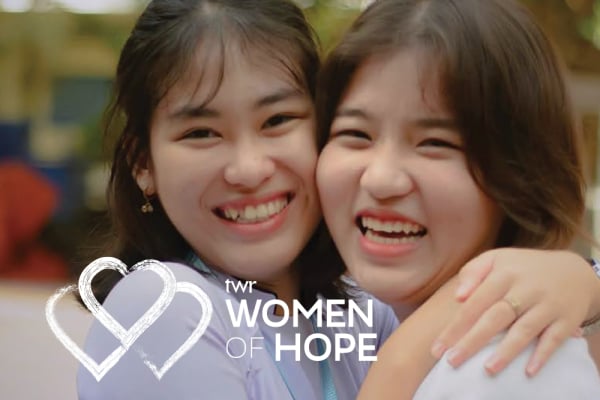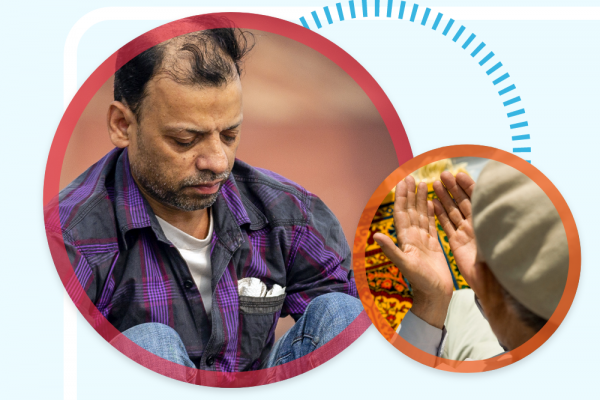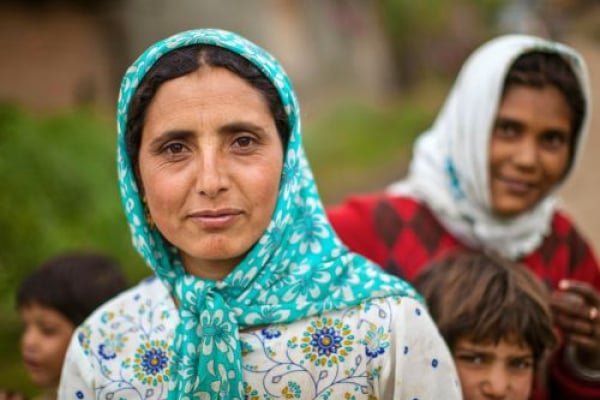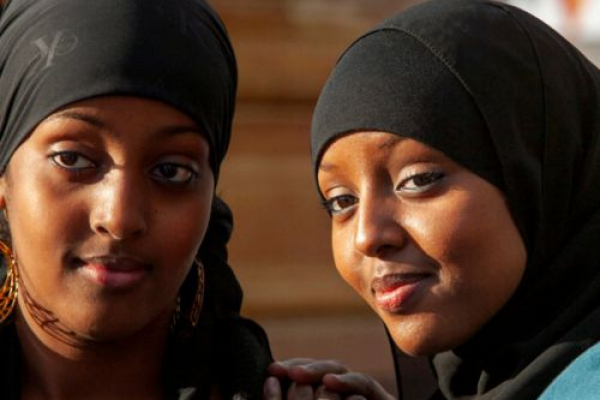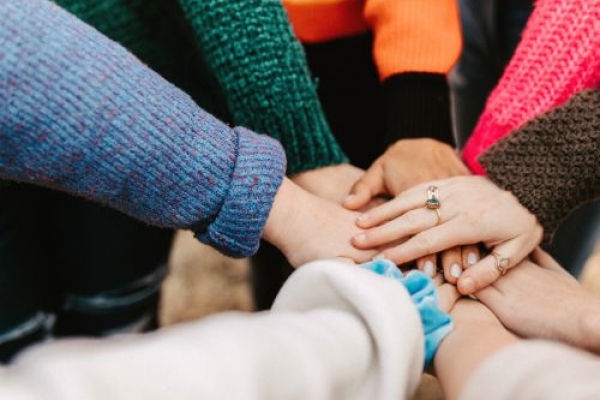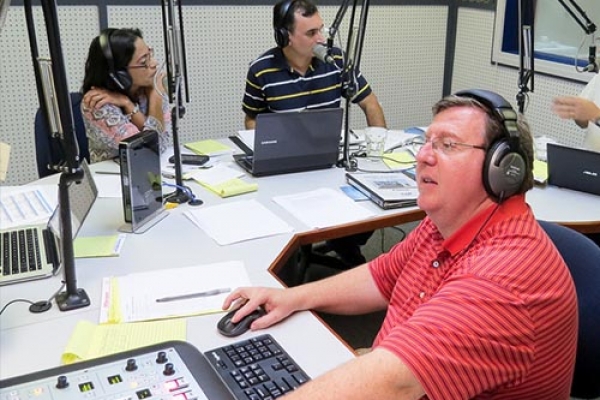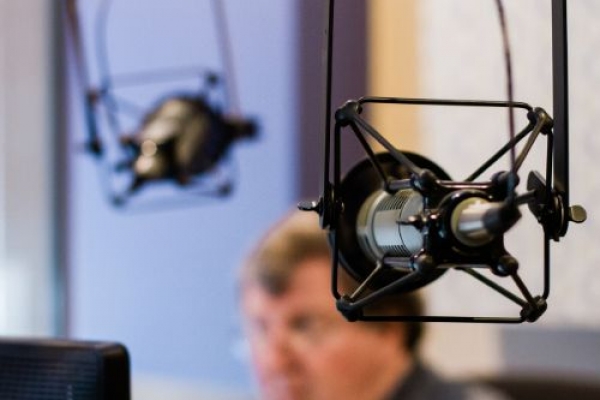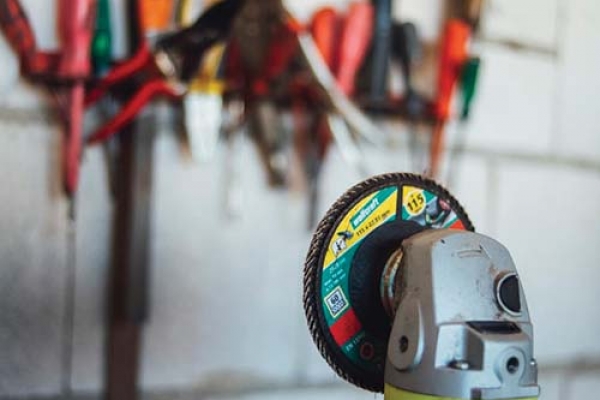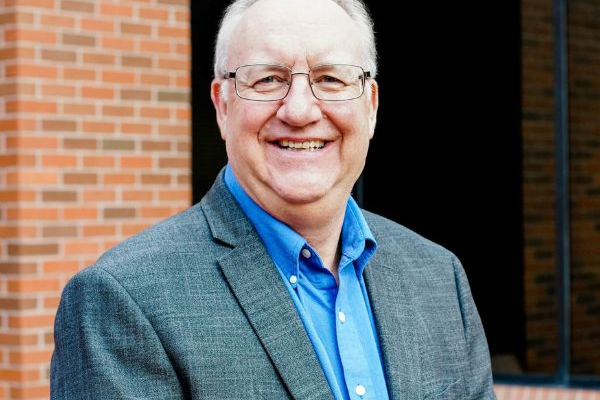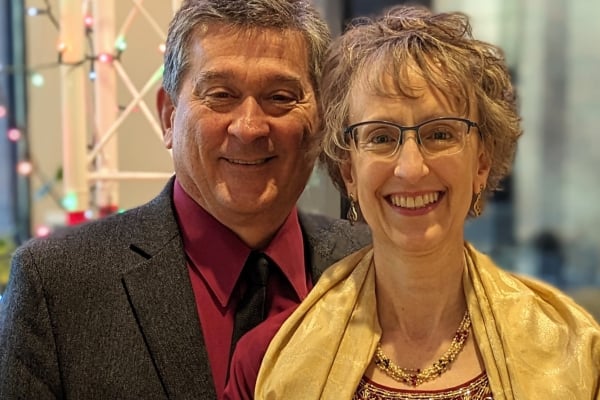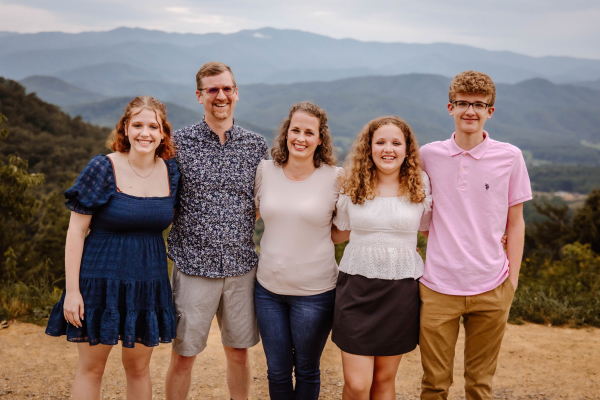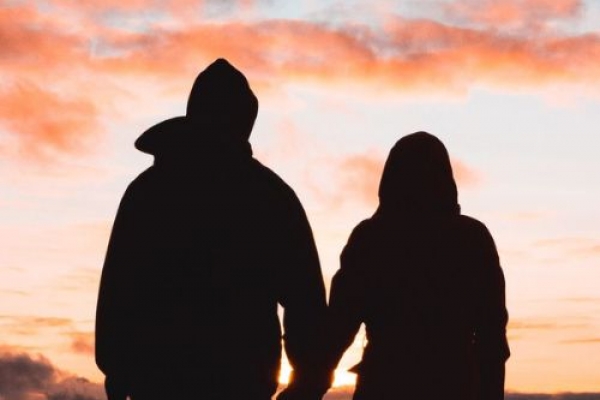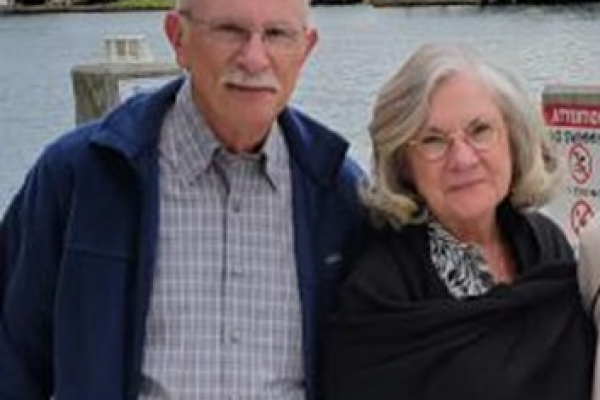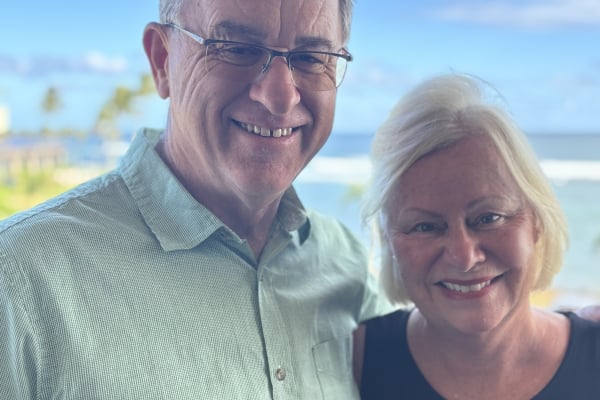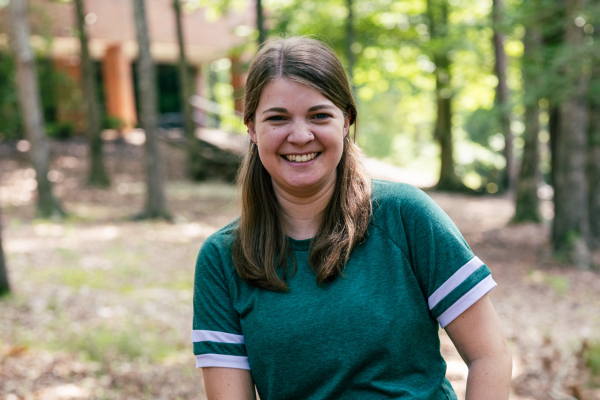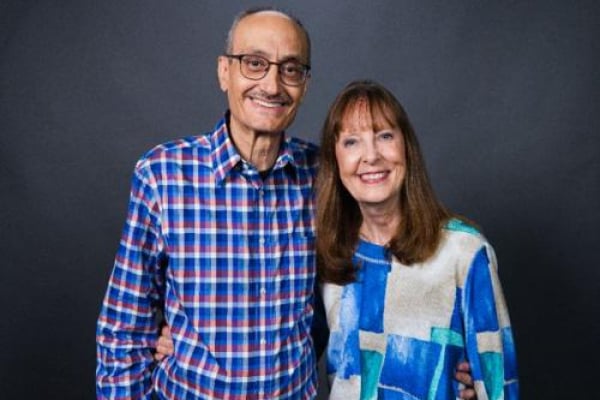
Assignment Europe: Singing Faroese
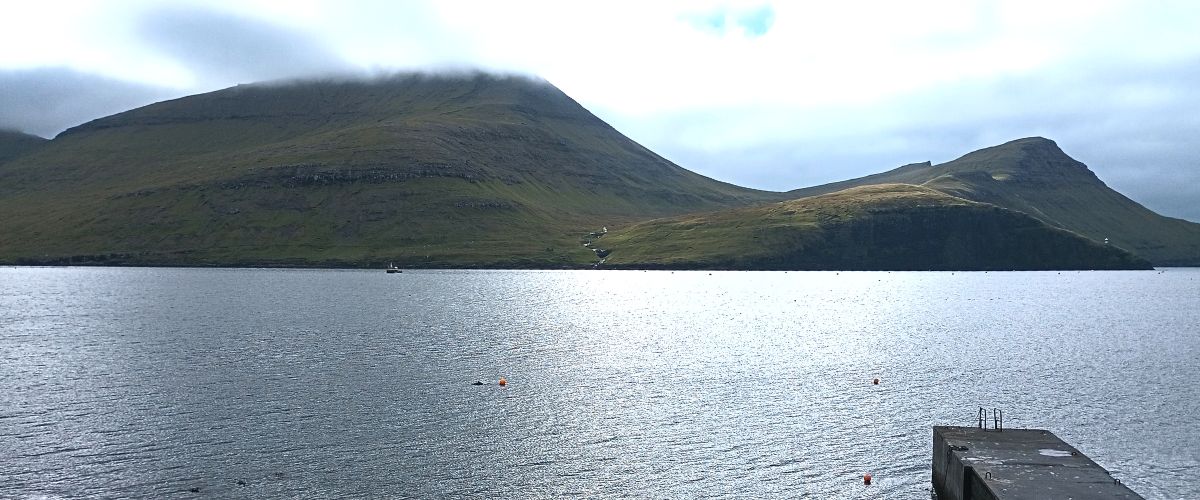
TWR's relationship with the people of The Faroe Islands, a North Atlantic archipelago that is part of the Kingdom of Denmark, dates back to fishermen in the 1960's.
TORSHAVN, Faroe Islands – When Frank Stephenson invited me to come here with Dr. Peggy Banks and him following the TWR European National Partner Conference, I was dubious.
Banks, director of TWR Women of Hope, had been booked to speak at a conference, a couple of church events and a radio interview or two. Stephenson needed to be here because he has many local connections. This is his eighth visit to these North Atlantic islands.
I had never been here, and of course I wanted to come. I didn’t know much about the Faroe Islands, but it certainly sounded exotic and off the beaten path. How many people do you know who have been to Ireland or Italy? How many people do you know who have been to the Faroe Islands?
And I might see puffins, those quirky seabirds with the outsized bills.
Stephenson, whose enthusiasm for these islands is unmatched – he calls coming here “Faroe therapy” – explained that the connection between TWR and the Faroe Islands runs long and deep. Some retired mariners on the islands remember listening to TWR broadcasts via medium wave from Monte Carlo on commercial fishing boats in the 1960s to the ’80s. He might be able to arrange interviews with people to whom these broadcasts meant a lot, Stephenson said.
Besides, he said, we probably could help wash dishes with other volunteers at the women’s conference where Banks would be speaking.
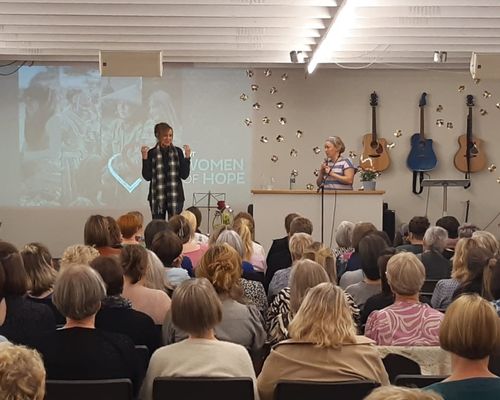 Well, we certainly did that. The conference was at Zarepta Conference Center, built and operated by the Church of the Brethren on Vagar Island, which is where the airport is located. Zarepta (or Zarephath in English Bibles) is named after the place where the Prophet Elijah was fed by a widow with the little she had left, and her flour jar and oil jug miraculously did not run empty until a famine had ended (1 Kings 17).
Well, we certainly did that. The conference was at Zarepta Conference Center, built and operated by the Church of the Brethren on Vagar Island, which is where the airport is located. Zarepta (or Zarephath in English Bibles) is named after the place where the Prophet Elijah was fed by a widow with the little she had left, and her flour jar and oil jug miraculously did not run empty until a famine had ended (1 Kings 17).
Zarepta Conference Center likewise is run on prayer and faith, said Sverri Absalonsen, one of about 20 men and teenage boys who had come from the northern part of the islands to serve at the women’s conference. It is run entirely on a volunteer basis, and all of its food is donated. It has a busy schedule of retreats, conferences and children’s camps, but neither people nor food run out.
On the Faroe Islands, it’s the Church of the Brethren that has had the long-standing relationship directly with TWR. It’s the second-largest denomination on the islands but comprises only about 13% of the population. (More than 80% of Faroese are Lutherans.) The population of the islands is about 50,000. Do the math, and it’s impressive that 270 women came from all over the islands for the three-day conference. Among them were three women from the southern island of Sudoroy who traveled 2½ hours by auto ferry to Torshavn, the nation’s capital, and drove another 30 minutes-plus to the conference site. That drive includes one of several undersea tunnels connecting islands.
The Singing
On Saturday evening, Stephenson and I stood in the back of the assembly hall to listen to Banks’ powerful presentation and also caught some of the worship. How can I describe the beauty of scores of women singing songs of praise in Faroese?
And how can I describe the robust, unreserved singing of the Faroese men? The Faroese seem to sing about everything. As the Saturday evening coffee break began, the men put on the jerseys of the northern islands’ football (soccer) club and marched in bearing desserts, singing with boisterous, manly enthusiasm. At the end of every meal, the women sang to the men, thanking them for their service. The men responded with a song of their own.
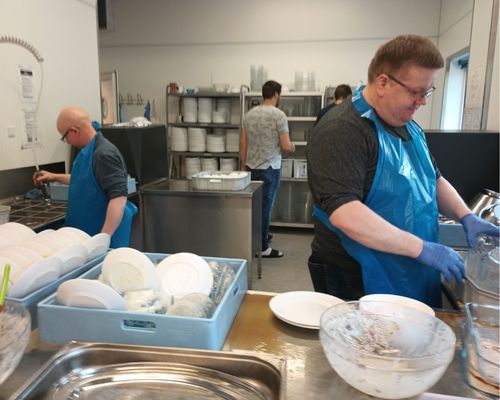 The sound of worship in the assembly hall was piped into the kitchen below. I watched a foursome sing along loudly but melodically with a hymn as they diced vegetables.
The sound of worship in the assembly hall was piped into the kitchen below. I watched a foursome sing along loudly but melodically with a hymn as they diced vegetables.
Nikolas Olsen, a big, unassuming man who was in the dishwashing crew, explained that when fishing required rowing the boats, the Faroese men would sing to accompany the rhythm of the oar strokes. As fishing has always been part of the Faroe Islands culture, so has music. Olsen estimated 80% of Faroese play musical instruments. He grew up in a home with a piano, an organ and two accordions.
“Sing a new song to the Lord; sing to the Lord, all the earth,” the psalmist wrote (Psalm 96:1). Faroese believers certainly embody those words.
The Place
The hardy people who call the Faroe Islands their home are created by God and shaped by their environment. It’s ruggedly beautiful and living here – as opposed to dropping by for a visit – requires fortitude. At the winter solstice, night lasts for 19 hours. The weather tends to be foggy with rain and wind or foggy with heavy rain and strong wind.
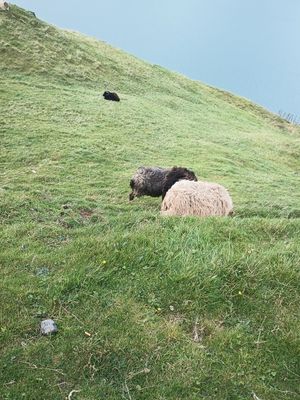 The thick clouds have a beauty of their own, but when the sun shines, it’s gorgeous. Mai Simonsen, a higher-level mathematics instructor who was one of the speakers at the women’s conference, told me that one beautiful day will keep Faroese people going for weeks.
The thick clouds have a beauty of their own, but when the sun shines, it’s gorgeous. Mai Simonsen, a higher-level mathematics instructor who was one of the speakers at the women’s conference, told me that one beautiful day will keep Faroese people going for weeks.
The topography consists of fjords, steep cliffs with rivulets of water plunging down their sides and moody shores. Sheep outnumber people and nonchalantly munch on the grass along those steep mountainsides. They eat anything that grows, which is why there is very little in the way of flora other than grass. Almost the only trees are in a section of Torshavn, population 20,000.
Simonsen gave us a ride here after the conference, and we’ll be based in Torshavn for the rest of the week. Stay tuned.
Images: (top, right) Dr. Peggy Banks, director of TWR Women of Hope, speaks on Saturday (Sept. 10, 2022) to a full room during the women's conference at Zarepta Conference Center on the Faroe Islands. Her interpreter (on the right) is fluent in English, Faroese and Danish and is an expert in Greenlandic, the indigenous language of Greenland. (middle, left) Faroese men, who volunteered to help at the conference, wash the dishes generated by 270 women on Sunday (Sept. 11, 2022) at the Zarepta Conference Center, Faroe Islands. Nikolas Olsen is in front on the right. (bottom, right) Sheep are the primary fauna of the Faroe Islands, prized for their wool and meat. Grazing steep slopes is not an issue for them. [Images courtesy of John Lundy, TWR]
